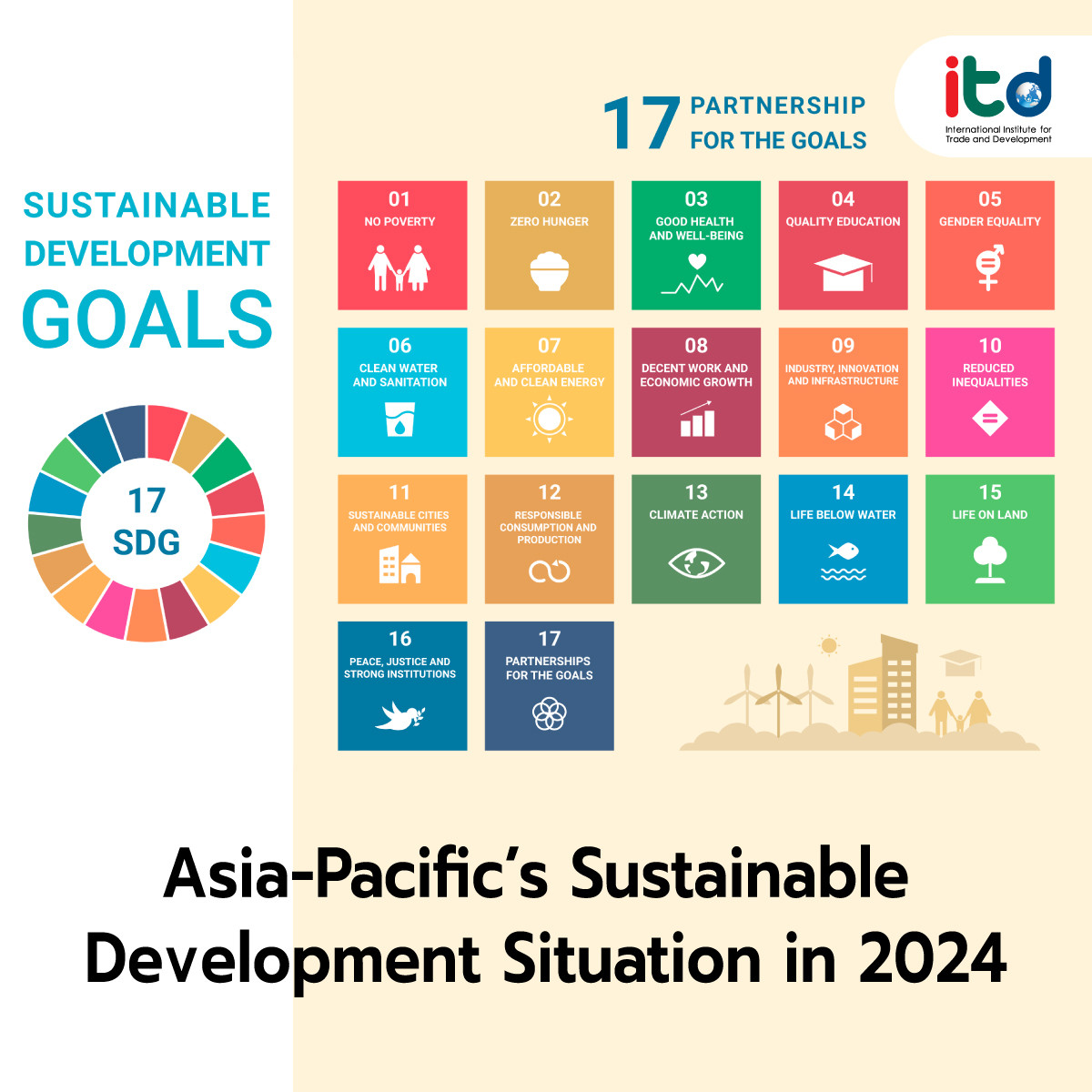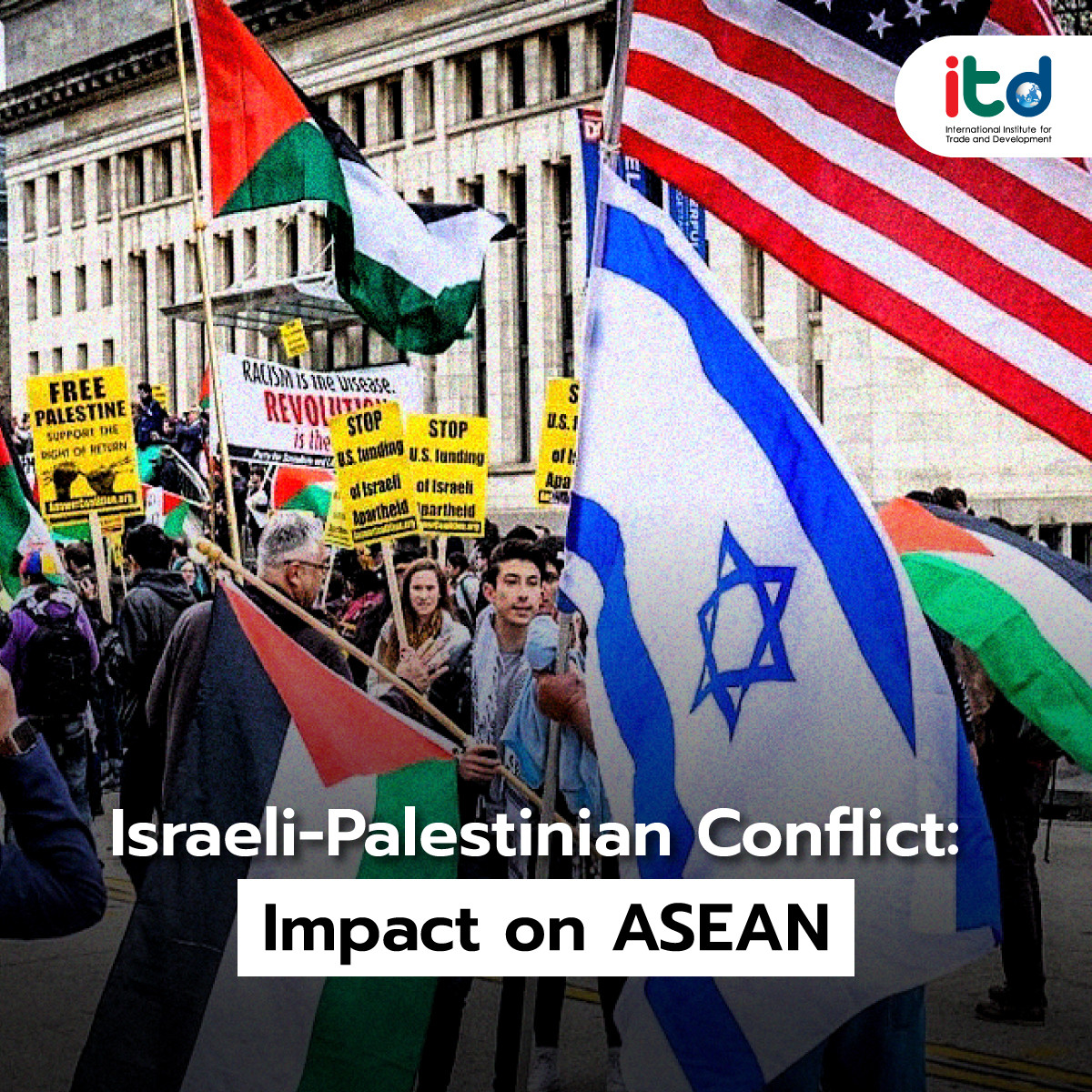About Documents
The Sustainable Development Goals are a set of global development objectives endorsed by 193 United Nations member countries in 2015, covering a period that must be achieved within 15 years. The document signed by all member countries as a binding agreement is called “Transforming Our World: the 2030 Agenda for Sustainable Development” or “the 2030 Agenda for Sustainable Development.” There are a total of 17 Goals within the Sustainable Development Goals, and under each Goal, there are 169 targets, along with 232 indicators.
UNESCAP has published the Asia and the Pacific SDG Progress Report 2024 Showcasing Transformative Actions. According to this report, in 2024, countries in the Asia-Pacific were able to achieve 1 in 3 of the necessary operational goals to reach the Sustainable Development Goals by 2030, which represents approximately 17% of the necessary operations to achieve all 17 goals by 2030. The delays were caused by the COVID-19 pandemic and global conflicts, which impacted global supply chain production.
Upon examining all the Sustainable Development Goals, it is observed that countries in the Asia-Pacific region have made progress in eliminating poverty (Goal 1) and bolstering sustainable industry, innovation and infrastructure (Goal 9). The success in industrial development is particularly evident in developing countries focused on infrastructure development and advancements in communication technology.
Goals with less progress include efforts towards zero hunger (Goal 2), enhancing good health and well-being (Goal 3), ensuring the availability of clean water and sanitation (Goal 6), expanding affordable and clean energy (Goal 7), as well as the development of sustainable cities.
This report indicates that countries in the Asia-Pacific region should prioritize efforts to climate action (Goal 13), which has seen regressive performance over the past three years. Measures to mitigate global warming should be promoted as part of a national plan. The evaluation of global warming reduction efforts faces a significant data shortage. The report specifies that efforts to reduce the impacts of global warming should proceed alongside the pursuit of enhancing access to decent work and support economic growth (Goal 8) and responsible consumption and production (Goal 12), as well as emphasizing the quality of life below water (Goal 14).
The urgent priorities that countries in this region should accelerate include the development of quality education (Goal 4), promoting gender equality (Goal 5), and facilitating women’s entry into the labor market.
However, the assessment of progress in achieving Sustainable Development Goals encounters issues due to a lack of data for many indicators, which hampers the ability to evaluate progress. This report anticipates that if countries in the Asia-Pacific region do not accelerate development and improve operations in sustainable development, it could result in extending the time required to achieve Sustainable Development Goals. Current estimates show these will not be reached before 2062, at least 32 years behind schedule.
Author:
Mr. Wimon Punkong
Deputy Executive Director (Academic)
International Institute for Trade and Development (Public Organization)
www.itd.or.th
Publication: Bangkok BIZ Newspaper
Section: First Section/World Beat
Volume: 37 Issue: 12591
Date: Wednesday, March 6, 2024
Page: 8 (left)
Column: “Asean Insight”





